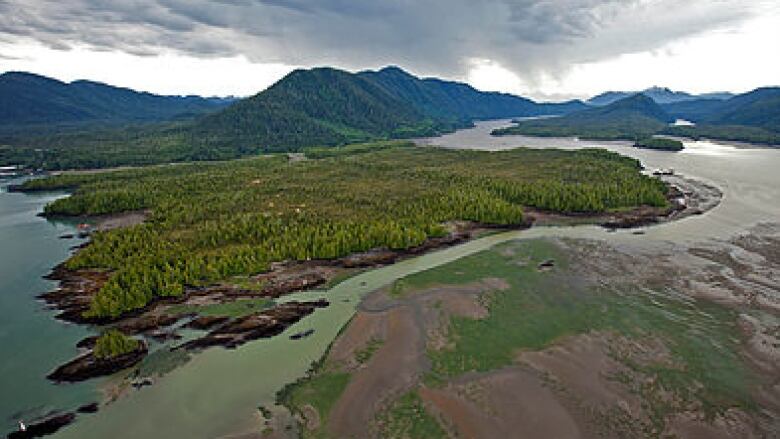Canadian environmental policy is a 'tyranny of small decisions'

It's nice to think of Canada's laws as the legislative force behind some high minded principles.
The Charter of Rights and Freedoms would definitely fall into that category.
But would Canada's Environmental Assessment Act?
Not according to University of Calgary law professor, Martin Olszynski.
He argues that when you look at this country's environmental assessment regime, and it's cumulative effect, at best it's a "tyranny of small decisions" — or in other words, a series of small debates that lack substantive standards or aspirations.
Our environmental assessment laws are not sending a sustainability signal to proponents in industry to say that maybe we need to change the way we develop. In fact, it may be the case that environmental assessment has become just a routine part of business as usual.- Martin Olszynski, Assistant Professor, University of Calgary Law
Olszynski says it's actually hard to know the effect the law has had, because there's no single monitoring system to track it. But he says indicators like the growing list of species at risk, show a negative effect.
The following is a condensed transcription of Martin Olszynski's interview with The 180's Jim Brown.
You describe the environmental assessment process as "a tyranny of small decisions." What do you mean by that?
So under the old act, we were looking at anywhere between three and four thousand environmental assessments a year. Under the current regime, there are roughly 60 to 65. So the problem is, that delta now, of several thousand projects, has sort of disappeared from the federal radar. And the result is that, while we're focusing only on these big projects, we know by now, in fact, and the research shows that most of the environmental degradation is in fact the result of those smaller projects, that cumulatively contribute to a significant impact.
So, if in a sense the process is too granular, too focused on the tiny and the microscopic, is there anyone at the other end of the telescope, who's looking at the big picture?
Well, that's it. And I think the answer is no. Not right now, in Canada. And baked into our federal environmental laws, especially, is this idea of the endless frontier. This idea that there will always be more water, there's always more forest, there's always more wildlife, and we can just keep developing, and developing, and developing. So the suggestion that I've made, one of the suggestions I made to the panel, is that we stop and sort of take stock of what's actually there. Take stock of what we have in Canada, what are our natural resources, and then make decisions about what's important, and how do we develop accordingly.
So how optimistic are you we can come up with an assessment process that comes as close as humanly possible to pleasing everybody?
I'm not at all optimistic that we could have a system that pleases everybody, but I do think that we can have a system that pleases most. And I think, to the extent that we get this impression that we have these organizations, the David Suzuki Foundation or whatever, that that's their job — that the rest of us Canadians can just kind of sit back and just let these different organizations and interests battle it out, I think, my suggestion would be that, no, actually, we need to all take an active interest in this stuff. Especially as Canadians, we like to pride ourselves on our attachment to the outdoors, to the environment. We like to fish, we like to hike, we like to ski, we like to bike. These things are related, we're not going to be able to do these things if we're not properly stewarding our natural environment.